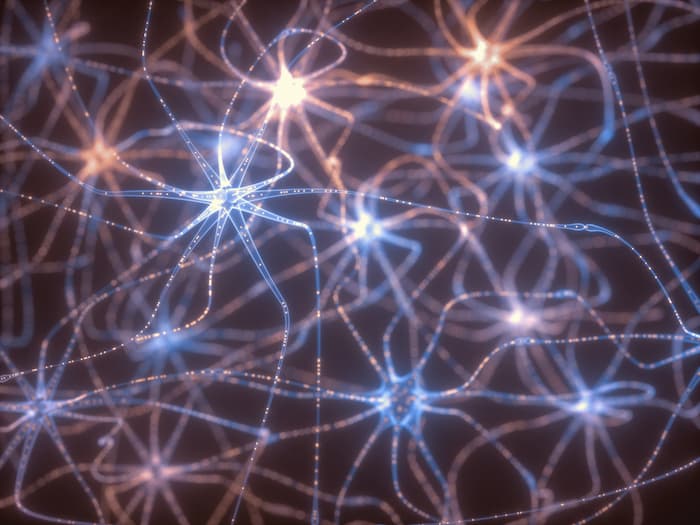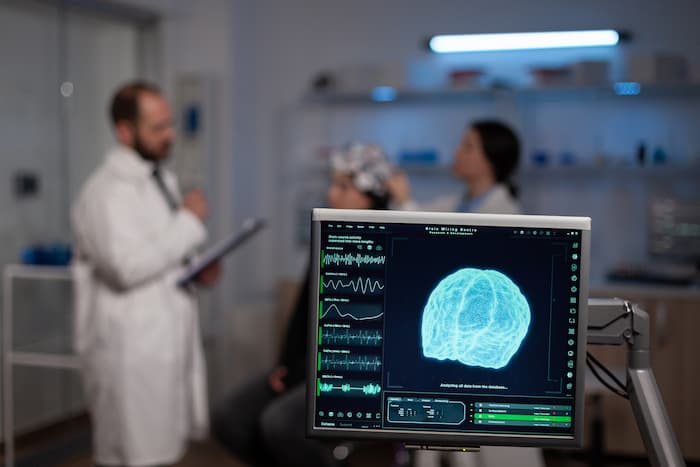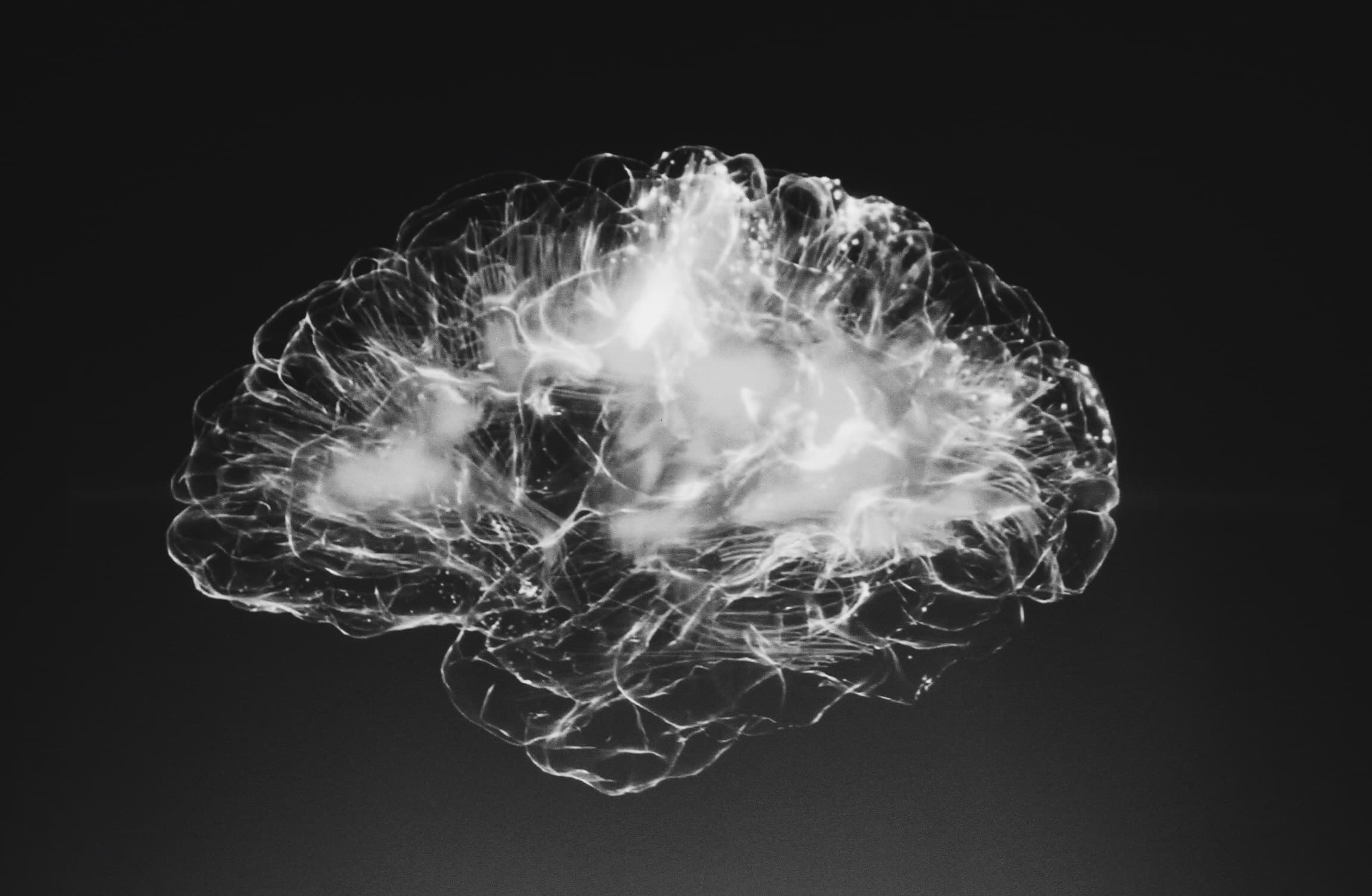Neurofeedback Therapy for Addiction in Malibu and Los Angeles
Neurofeedback Therapy is a safe and noninvasive form of neurotherapy brainwave imaging that has shown very positive results for treating addiction and mental health conditions
We use BrainPaint® Neurofeedback Therapy at Oro House Recovery Centers because it offers the best protocols for the treatment of PTSD, trauma, addiction, depression, anxiety, and other issues.
BrainPaint Neurofeedback is an evidence-based therapy that trains a person to gain control of their thought patterns by recognizing common triggers caused by addiction and mental disorders.
During a typical session, a Neurofeedback technician applies electrodes to the scalp of the patient to analyze brainwave activity and observe the brain in action from moment to moment. A computer processes these signals while all of the information related to key brainwave frequencies is retrieved and then shown to the person who is being treated.


By watching the ebb and flow of brain activity, changing to more pleasant frequencies, and observing the feedback from these changes, the individual being treated becomes an active participant in their healing in real time as it occurs.
During this neurotherapy process, the brain is rewarded for changing its own activity to more appropriate patterns. Neurofeedback Therapy is a gradual learning process for the person undergoing treatment. Eventually, they learn to “shape” their own brainwave activity to a more desirable state and normalize neural activity.
Based on the region of the brain and the brainwave frequencies being analyzed, Neurofeedback is able to identify areas of concern and potential imbalances to address during treatment for each individual.
Contact Us For More Information on Neurofeedback Therapy
What is Neurofeedback?
Neurofeedback is also called EEG Biofeedback because it is based on electrical brain activity, and is measured by an electroencephalogram, or EEG.
In its simplest terms, Neurofeedback is biofeedback applied directly to the brain, with the goal of self-regulating or training the brain to be more efficient. Self-regulation is a necessary part of optimal brain functioning and performance. This type of self-regulation training therapy improves and optimizes central nervous system functioning.
Neurofeedback addresses numerous problems of brain dysregulation, which includes the anxiety-depression spectrum, attention deficits, behavior disorders, various sleep disorders, emotional disturbances, and of course, addiction.
In addition to treating substance use addiction for drugs and alcohol, Neurofeedback Therapy is also an effective method for managing symptoms related to anxiety, depression, chronic pain, ADHD, post-traumatic stress disorder (PTSD), and other mental health issues.
After several sessions, most people learn to take control of an overactive mind and increase their focus and concentration. They are also better equipped to manage stress by remaining calm in tense situations and notice overall improvements in mood.
Neurofeedback Therapy Optimization
We have had great success using BrainPaint Neurofeedback Therapy with our clients at Oro House, and they enjoy working with the technology. For those who have never used it before, it can sound a bit scary until they actually see how it works and begin their first session.
We put together this Neurofeedback Cheat Sheet that explains five types of brainwaves, and how Neurofeedback Therapy training measures and analyzes brain activity to identify areas that need improvement.
Neurofeedback is one of many evidence-based treatment modalities we use for lasting recovery. Find out about other treatment therapies for addiction used at Oro House.
BrainPaint Neurofeedback Therapy for Addiction and Mental Health
BrainPaint Neurofeedback Therapy follows a personalized medicine model that customizes healthcare practices specifically tailored for each individual. Depending on a person’s goals and issues, the system customizes the protocols for their specific needs. All of this occurs without the use of any medications.
William Scott (co-founder of BrainPaint) was a Staff Research Associate IV at the UCLA Neuropsychiatric Institute from 2001 to 2006.
His team published a randomized controlled clinical trial that found a significant impact on addiction relapse, average length of stay, MMPI and Test Variables of Attention (TOVA).
We are generally awake for 16 hours a day and most of that time is spent in our “attention network.” However, in between paying attention are quiet moments and breaks where most of our pain resides and we dwell on past struggles and future worries.
Based on a person’s goals we will assign different lengths of workouts to provide feedback on attention to our default mode network.
Neurofeedback Therapy helps the brain to self-regulate, be more efficient, and train itself to improve emotional states such as:
- Addiction to drugs or alcohol
- Mental health disorders
- PTSD issues
- Chronic pain
- Attention and focus
- Headaches and migraines
- Head trauma (TBI and concussion)
- Depression and anxiety
- Sleep (falling and staying)
- Restless leg syndrome
- Sports performance
- Brain functioning

The brain does not atrophy like muscles and often retains the gains it achieves from neurofeedback training.
For example, if an individual stops having night sweats after 2 or 3 sessions, that person may be able to permanently stop night sweats after an additional 5 to 8 sessions.
One of the most unique features of BrainPaint Neurofeedback software is that the system determines the most effective protocols for the issues our clients are experiencing.
Once a client reaches a plateau, the training protocols are updated, so there is no ceiling to the improvements and benefits they can attain.
We also have peak performance protocols that are based on a game people play. The system monitors when the brain is in its most concentrated state and designs an entire program to optimize and maintain peak brain performance.
Research on the BrainPaint Neurofeedback system has demonstrated a positive impact on improving attention, anxiety, depression, addiction, thought disorders, social introversion, hysteria, hypochondria, and openness (reduced defensiveness), while ensuring more consistent results.
BrainPaint is the only neurofeedback therapy system that automates the exact Alpha-theta protocols to address PTSD, trauma, and substance use addiction. This is also the best protocol for overcoming many phobias, fears, depression, some forms of anxiety, fibromyalgia, and chronic pain.